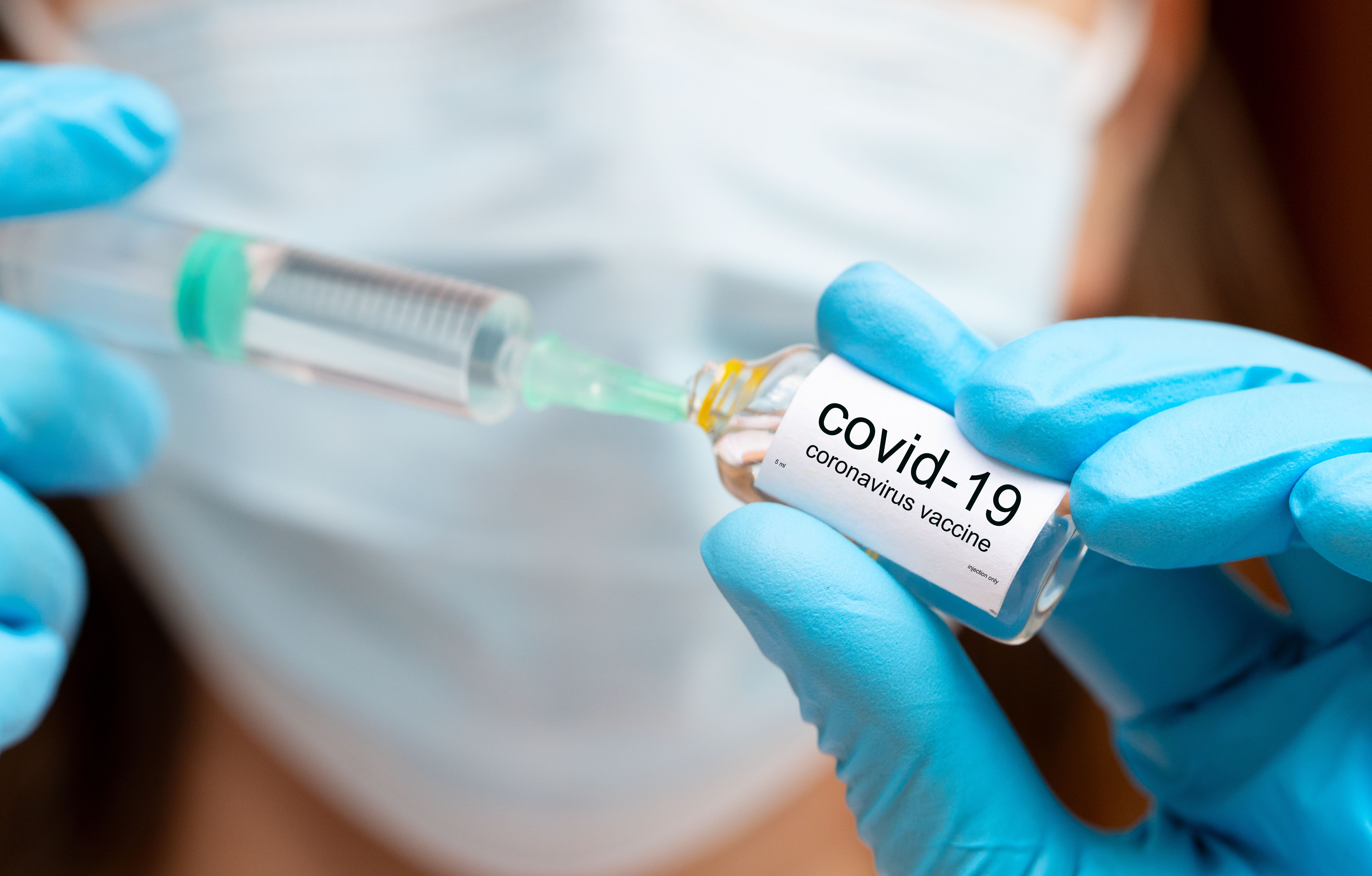Phase III NextCOVE Trial Data Show Efficacy of Moderna's Next-Generation COVID-19 Vaccine
mRNA-1283 was found to elicit a higher immune response against SARS-CoV-2 than Moderna's licensed COVID-19 vaccine, mRNA-1273.
Image credit: neirfy | stock.adobe.com

Results from the Phase III NextCOVE (NCT05815498) trial demonstrated the efficacy of Moderna’s next-generation COVID-19 vaccine, mRNA-1283. Data show the novel vaccine produced an immune response against SARS-CoV-2 greater than Moderna's licensed COVID-19 vaccine, mRNA-1273.222, the company announced in a press release.1
"We are excited to announce our fourth infectious disease vaccine program with positive Phase III data, further validating our robust mRNA platform," Moderna CEO Stéphane Bancel said in the release. "mRNA-1283 is a critical component of our combination vaccine against flu and COVID-19, mRNA-1083, and this milestone gives us confidence in our ability to bring this much needed vaccine to market."1
mRNA-1283 is an mRNA-LNP vaccine that encodes for a chimeric protein (NTD-RBD-HATM) comprised of the SARS-CoV-2 S protein NTD and RBD, which are attached by a flexible peptide linker and anchored to a 23-amino acid transmembrane domain from influenza hemagglutinin.2
The randomized, observer-blind, active-controlled NextCOVE trial enrolled approximately 11,400 individuals 12 years of age and older in the United States, United Kingdom, and Canada. Participants were randomly assigned to receive a single intramuscular injection of either mRNA-1283 or mRNA-1273 on day one.3
Investigators found that compared to mRNA-1273, mRNA-1283 produced a greater immune response against both the Omicron BA.4/BA.5 COVID-19 variant and the original strains of SARS-CoV-2. Notably, the increased immune response was most acutely observed in individuals over 65 years of age, who have the greatest risk of severe outcomes from COVID-19. The most commonly reported local adverse event (AE) was injection site pain, with headache, fatigue, myalgia, and chills being the common solicited systemic AEs.
Moderna also noted that the storage, shelf life, and pre-filled syringe presentation of the vaccine may lower the burden on healthcare providers while improving access new settings.
Interim results from a prior Phase I randomized clinical trial (NCT04813796) of mRNA-1283 showed that across the 10 µg, 30 µg, and 100 µg dose levels of mRNA-1283, administered on a two-dose schedule 28 days apart, the vaccine was generally safe and produced robust immune responses comparable to mRNA-1273 at a dose of 100 µg. The lowest administered dose level of mRNA-1293 at 10 µg showed the most favorable tolerability profile, with robust nAb and bAb responses to SARS-CoV-2 after the second dose that was similar to mRNA-1273. Investigators stated that the results suggest a two-dose regimen of mRNA-1283 at a lower dose level may produce similar efficacy to mRNA-1273.
“In conclusion, these preliminary findings support the continued evaluation of mRNA-1283, a next-generation SARS-CoV-2 vaccine,” the study authors wrote. “All dose levels of mRNA-1283 administered via a 2-dose regimen, 28 days apart, were generally safe in healthy adults aged 18–55 years, with the lowest dose level (10 µg) inducing comparable immunogenicity to the approved mRNA-1273 100 µg regimen. Clinical evaluation of mRNA-1283 is ongoing to assess the applicability of booster doses at lower dose levels and immune responses against other SARS-CoV-2 variants.”2
Detailed clinical trial data from the NextCOVE study will be presented at Moderna’s Vaccines Day event on March 27 and at upcoming scientific conferences, the company added in the press release.1
References
1. Moderna Achieves Positive Interim Results from Phase 3 Trial of Next-Generation COVID-19 Vaccine. Moderna. News release. March 26, 2024. Accessed March 26, 2024. https://investors.modernatx.com/news/news-details/2024/Moderna-Achieves-Positive-Interim-Results-from-Phase-3-Trial-of-Next-Generation-COVID-19-Vaccine/default.aspx
2. Clinicaltrials.gov. A Study of mRNA-1283.222 Injection Compared With mRNA-1273.222 Injection in Participants ≥12 Years of Age to Prevent COVID-19 (NextCOVE). Website. Qpril 18, 2023. Accessed March 26, 2024. https://classic.clinicaltrials.gov/ct2/show/NCT05815498
3. Patrick Yassini, Mark Hutchens, Yamuna D. Paila, Lorraine Schoch, Anne Aunins, Uma Siangphoe & Robert Paris (2023) Interim analysis of a phase 1 randomized clinical trial on the safety and immunogenicity of the mRNA-1283 SARS-CoV-2 vaccine in adults, Human Vaccines & Immunotherapeutics, 19:1, DOI: 10.1080/21645515.2023.2190690.
Using Patient Reported Outcomes in Dermatology Trials
April 25th 2024In part 3 of this video interview with ACT editor Andy Studna, Melissa Mooney, director, eCOA sales engineering, IQVIA sheds light on the unique challenges of dermatology trials and how clinical outcome assessments can be implemented in them.